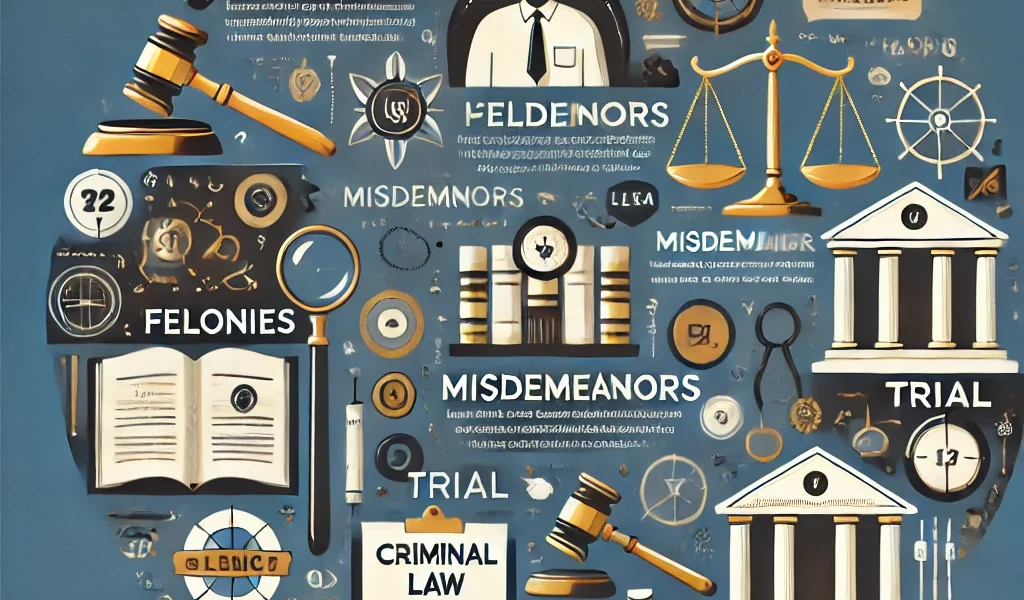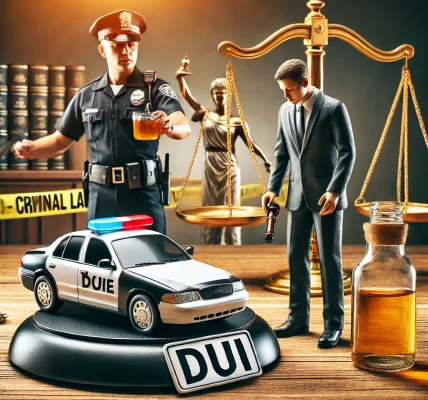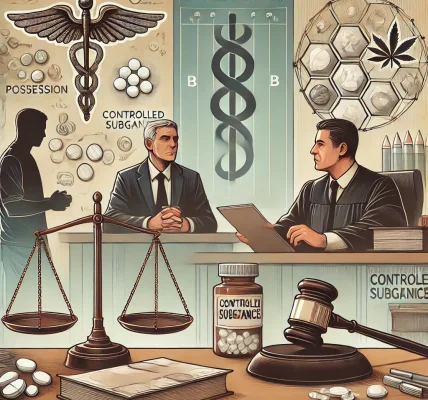Criminal law is a fundamental branch of the legal system that deals with offenses against the state, society, or individuals. It defines what constitutes a crime, prescribes punishments, and ensures justice is served. This beginner’s guide will help you understand the basics of criminal law, its importance, and how it impacts society.
Understanding Criminal Law
Criminal law governs behaviors that are deemed harmful to society and outlines the legal consequences of such actions. The primary objective is to maintain order, deter criminal activities, and provide justice to victims.
Types of Crimes
Crimes are generally categorized into different types based on their severity:
- Felonies: These are serious crimes such as murder, rape, kidnapping, and robbery. They often carry severe punishments, including long-term imprisonment or even the death penalty in some jurisdictions.
- Misdemeanors: Less severe crimes like petty theft, vandalism, and minor assault. These usually result in shorter jail terms, fines, or community service.
- Infractions: Minor offenses like traffic violations or public nuisance, which generally lead to fines rather than jail time.
Key Elements of Criminal Law
To classify an act as a crime, certain elements must be established:
- Actus Reus (Guilty Act): A physical action that violates the law.
- Mens Rea (Guilty Mind): The intent behind committing the crime.
- Causation: The link between the defendant’s actions and the criminal outcome.
- Concurrence: Both Actus Reus and Mens Rea must occur simultaneously.
Legal Process in Criminal Cases
A criminal case generally follows these steps:
- Investigation & Arrest: Authorities gather evidence and, if sufficient, make an arrest.
- Charges & Bail Hearing: The prosecutor files formal charges, and a bail hearing determines whether the accused can be released before trial.
- Trial: The prosecution and defense present their arguments, and a judge or jury determines the outcome.
- Sentencing: If found guilty, the defendant receives a sentence based on the crime’s severity.
- Appeal: The convicted person may appeal if they believe there was a legal error in the trial.
Why is Criminal Law Important?
- Protects Society: Prevents harmful actions by imposing strict penalties.
- Ensures Justice: Provides victims with a legal avenue for redress.
- Maintains Order: Establishes a legal framework that deters crime and promotes harmony.
- Rehabilitation: In some cases, criminal law focuses on reforming offenders to reintegrate them into society.
Conclusion
Criminal law is crucial for a structured and secure society. Understanding its principles helps individuals become more aware of their rights and responsibilities. Whether you are a law student, a legal enthusiast, or simply curious, knowing the basics of criminal law can be beneficial in navigating the legal landscape.
By staying informed, you can contribute to a just society while protecting yourself and others from legal troubles.




